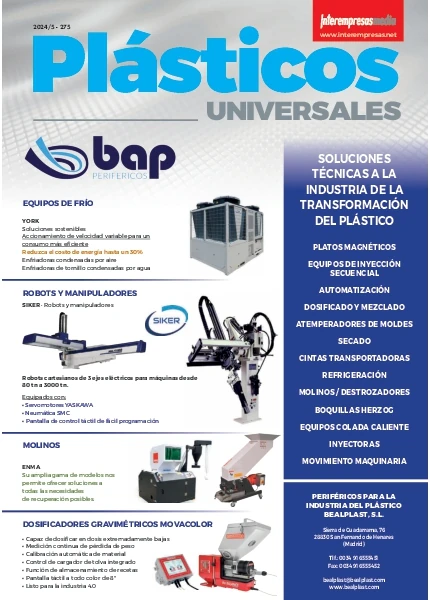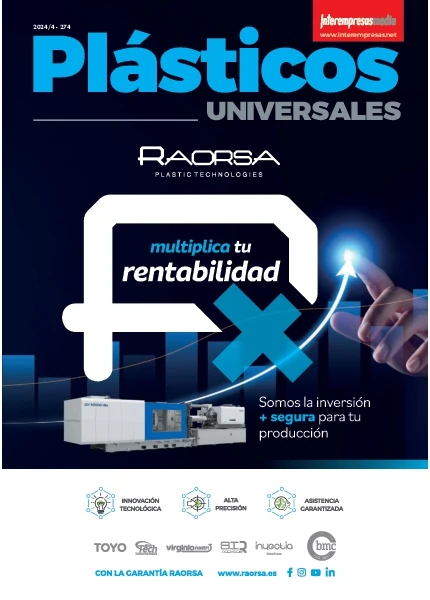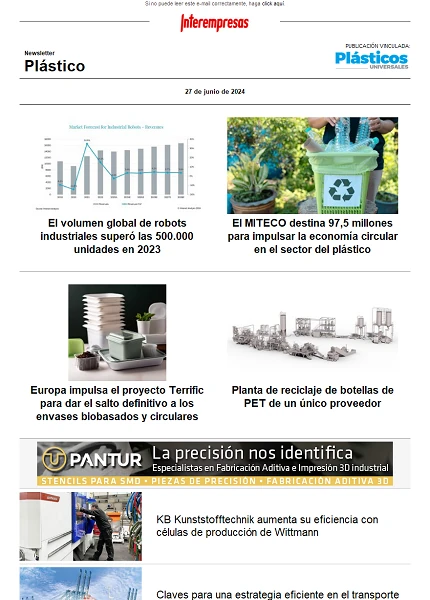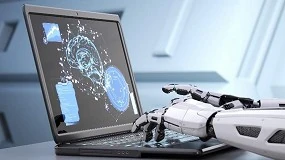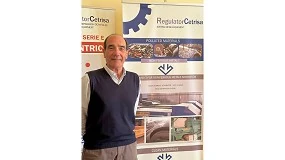It helps to make productive decisions in processing plants
AIJU uses the simulation to improve productive systems in companies
Are many the tools that exist nowadays for the Management and Planning of the Production, but perhaps is the simulation applied to the productive processes one of the most useful technicians for the help to the taking of decisions. It carries it out experiments with a computer on a model of management during a period of time.
The models, in general, represent the reality whereas the simulation imitates it.. A simulation describes and/or predice the characteristics of a system given under different circumstances. Once that these characteristics know, can select the best political of between the diverse that exist. Therefore, the simulation of a plant of transformation of plastic will allow to anticipate to the future visualising the evolution of a determinate production to short, half or long term and obtaining some conclusions that will determine the election of the best political on the management of resources, planning and programming of the production, analysis of future investments, management of stocks, new organisational models, analysis of different distributions in plant, and in definite, on the application of different parameters that influence on the productive system.
The most representative characteristics of the simulation summary in the following:
- The model of simulation can cover from an isolated productive process that allow the study and analysis of a specific parameter until the all the plant of production with the corresponding interactions between parameters.
- The simulation is descriptive more than normative which allows to the director answer to questions of the type "that would happen if".
- The model of simulation realises for a particular problem.
- With the simulation can tackle one extremely wide variety of problems, such like inventories and provision of personnel like functions of high managerial level like the planning on a long-term basis.
- The simulation allows the inclusion of the complexity of the problems of the real life ; the simplifications are not necessary, since the simulation uses the distributions of probability of the reality and no approximate theoretical distributions.
- The simulation offers the possibility to analyse the effects of diverse politics on a long-term basis (1 to 10 years) in few minutes.
The Technological Institute of the Toy – AIJU works at present in the development of projects for companies in the field of the improvement of the productive system and the optimisation of the processes. The simulation of the productive processes is, in this case, one of the tools used for this end, being of big utility for the help to the taking of decisions in all the area of the company, especially in the productive area.
The simulation of productive systems applies to distinct areas as they can be :
- Lines of production.
- Storages.
- Systems of lines transportadoras.
- Models of organisation.
- Cells of flexible manufacture.
- Processes of assembling.
- Systems of tails in general.
In this sense AIJU has developed, for the resolution of the most representative problems of the plants of transformation of plastic, an application that allows the analysis of different productive parameters like the allocation of resources, the evolution of the tails and the detection of necks of bottle, with the advantage of the graphic visualisation of the temporary evolution of the production in advance.
One of the main problems of the plants of transformation of plastic is the difficulty of allocation of moulds to machinery. Almost always they are miscellaneous the machines that can bear a same mould, but the questions that do the majority of managers of the production in the transformative plants of plastic are:
To which machine suits me assign each mould? What loads will represent me the assign a mould to one or another machine? How they evolved me the tails in each one of the machines? When I will obtain the components that form a final product or semielaborado?.
With the utilisation of tools like the simulation can arrive to a balanced of tails in each one of the machines, avoiding to the maximum excessive loads in machinery that comport a delay in the obtaining of the components that form a final product or semielaborado.
The application of simulation developed can divide in two parts:
1.- Optimum allocation to machinery
A first part allows to realise an optimum allocation to machinery balancing the tails through the incorporation of an algorithm to the program of simulation. With this obtains the optimum allocation of each component to each machine of the plant, a balanced of the tails and an earlier ending of the components of a product finished or semielaborado.
2.- Simulation of the production programmed
A second part, interconnected with the first, allows to simulate the production programmed so that it can observe gráficamente, of form anticipated, the evolution of the production observing the conflicts that can become, like the coincidence of several changes of mould simultaneously, the evolution of the tails or the ending of the components of a same product or semielaborado. One of the advantages of the application is that it allows to redefine quickly any productive parameter and observe gráficamente and of form anticipated his repercussion in the evolution of the production. Therefore, it treats of a tool of help to the taking of decisions in the productive field.
The most representative advantages that it can contribute the utilisation of the simulation like tool of management are the following:
- Analyses of necks of bottle. Allows to analyse the necks of bottles, observing gráficamente the tails and time of wait for each machine or productive process. In this case, and for the application developed by AIJU has programmed and incorporated an algorithm that solves and optimises to a large extent the problems of own tails of the plants of transformation of plastic.
- Changes of productive parameters. The simulation allows to realise changes on the most influential parameters in the processes of injection of plastic and observe the evolution of the production programmed in function of said parameters. Of this form, offers the possibility to assign different capacities and schedules of work to each machine with the end to balance the productive chain, as well as realise simulations with the incorporation of new machinery, different time of change of mould and of colour and observe the simultaneity of changes of mould in the programming of the production realised.
- Analyses of investments and extension of capacity. The simulation allows to know "that would happen if" our plant had of new machinery or installations or was distributed of different way. Therefore, it treats of an extraordinary tool to analyse the repercussions of new investments regarding increase of the productivity, return of the investment, influence on the rest of processes of the productive chain, etc.
- Determination of the needs of material. The tool of simulation allows to obtain the needs of material necessary for each one of the programmings of mock production. In this case and for companies that work with minimum stocks of hygiene, can obtain, for the optimum programmings, the exact dates of replacement with the end to avoid breaks of stock.
- Control of the utilisation of the injection machinery. The application developed, allows to obtain the utilisation of the machinery in accordance with the mock programmings, so that it can value the influence of the times of change of mould on the global process of the plant and can realise simulations of sizes of batches with the end to arrive to an optimisation of the utilisation of the machinery.
- Determination of the state of production. Anytime of the simulation of a programming of the production, the user will be able to obtain information of the state of theoretical manufacture in the plant. Thus, we can anticipate us to the ending of the manufacture of each machine of injection individually or of the plant in general. The reliability of the results will depend on the accuracy of the real times controlled and of the nonexistence of "unforeseen".
- Determination of the costs of manufacture. Using the fixed costs and variables of the plant of transformation of plastic, can arrive to realise different simulations determining the costs of each one of the mock programmings.
In any case, the utilisation of the simulation like tool for the help to the taking of decisions will require of a previous advice by part of experts, followed of the programming of the applications that allow a maximum optimisation of resources in the company.
With this application and on the proofs realised on real data has achieved reduce until in 20% the time of exit of all the necessary plastic components for the setting of a product finished or semielaborado. Therefore, a good balanced of tails and a suitable programming of the production based in the previous simulation establishes like a very effective system for the suitable taking of productive decisions.
Ignacio Looks
Francisco Ibañez
AIJU
ingenieria@aiju.es
www.aiju.es


